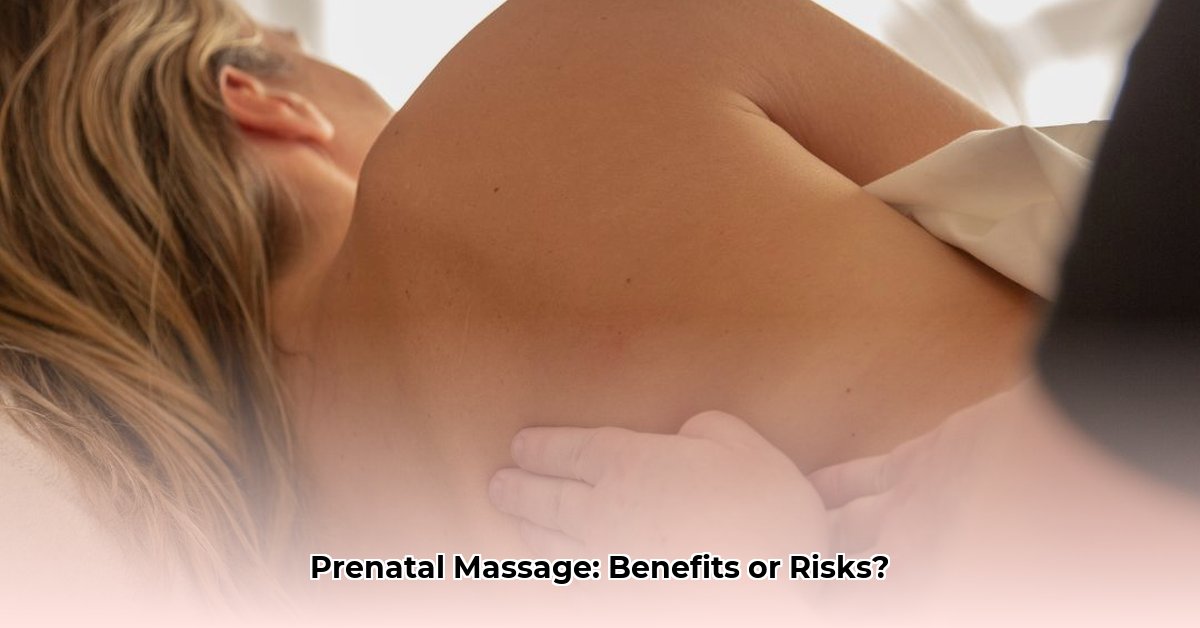
Pregnancy brings a whirlwind of emotions and physical changes. While it's a joyous time, it also presents unique challenges. Prenatal massage in St. Louis, MO, offers a potential pathway to comfort and well-being during this transformative journey. However, it's crucial to approach it with careful consideration and informed decision-making. Always consult your healthcare provider before beginning any new treatments during pregnancy.
Benefits of Prenatal Massage
Prenatal massage, specifically designed for expectant mothers, offers a multitude of potential benefits. These include:
Pain Relief: Alleviates common pregnancy discomforts like back pain, sciatica, hip pain, and headaches by reducing muscle tension and improving circulation. Many women report significant relief from these common ailments.
Stress Reduction: Pregnancy hormones and life changes can significantly impact stress levels. Prenatal massage promotes relaxation, easing anxiety and improving mood. Regular sessions can help manage stress naturally.
Improved Sleep: The relaxation induced by prenatal massage can translate into better sleep quality, combating the sleep disturbances frequently experienced during pregnancy. This improved rest contributes to overall well-being.
Potential Labor Benefits: Some studies suggest that prenatal massage may influence labor positively by potentially shortening labor duration or reducing pain. Further research is needed to conclusively confirm these potential effects.
Reduced Swelling: Improved circulation through massage can help minimize swelling in the hands and feet, a common pregnancy symptom that can be quite uncomfortable.
Risks and Precautions
While generally safe, prenatal massage presents potential risks, particularly for high-risk pregnancies. Understanding these risks is vital for informed decision-making.
High-Risk Pregnancies: Conditions like preeclampsia, placenta previa, or placental abruption necessitate extra caution. In such cases, prenatal massage might be contraindicated or require significant modifications. Always consult your doctor or midwife for personalized guidance. This is not just a precaution, it's absolutely essential.
Improper Technique: Inexperienced therapists can inadvertently cause harm. Choosing a certified and experienced therapist is critical for ensuring safe and effective treatment. A qualified practitioner will be knowledgeable about adapting techniques to accommodate the changes of pregnancy.
Overheating: Excessive heat can be detrimental to pregnancy. Avoid massage modalities involving hot stones or extremely warm environments. Your therapist should maintain a comfortable room temperature and be mindful of heat exposure.
Allergic Reactions: Some individuals may experience allergic reactions to massage oils. Discuss any allergies with your therapist beforehand to avoid potential complications.
Finding a Qualified Prenatal Massage Therapist in St. Louis
Selecting the right therapist is paramount to ensure safety and maximize benefits. Look for these key factors:
Certification: Confirm that the therapist holds relevant certifications in prenatal massage, demonstrating their specialized knowledge and skillset. This ensures that they have the specific training needed to address the unique needs and potential risks during pregnancy.
Experience: Inquire about their experience working with pregnant women, particularly those with high-risk pregnancies. Experience offers valuable insight and improved safety.
Techniques: Ask about their massage techniques and how they adapt their approach to different pregnancy stages. A nuanced approach is vital for comfortable and effective treatment.
Safety Protocols: Ensure the therapist adheres to strict safety protocols to minimize risks throughout each session. Thorough safety measures are crucial for reducing potential harm.
Client Reviews: Review online testimonials to learn about other clients' experiences. This is an excellent way to gauge a therapist's performance, care, and effectiveness.
Consult Your Doctor: Always discuss prenatal massage with your doctor or midwife to determine suitability for your individual situation. This holistic approach is crucial to ensure treatment aligns with your unique health needs.
What to Expect During a Prenatal Massage Session
Your first session will involve a consultation to discuss your medical history, pregnancy progress, and any concerns. The massage itself generally employs side-lying positions, using pillows and bolsters for support and comfort. Gentle, flowing strokes will ease muscle tension and improve circulation, tailored to your unique circumstances. You'll likely be partially clothed, wearing comfortable attire. Open communication is vital—voice any discomfort or questions throughout the session.
Post-Massage Care
After the session, prioritize self-care. Drink plenty of water, rest adequately, and listen to your body’s signals. Gentle stretching may alleviate any residual soreness. Avoid strenuous exercise.
Conclusion
Prenatal massage offers numerous benefits, but careful consideration of risks and selection of a qualified therapist are crucial. Always consult with your healthcare provider before starting any prenatal massage regimen. Prioritizing safety ensures a positive and healthy pregnancy journey. Remember, the goal is to support your well-being and create a comfortable and joyful experience throughout your pregnancy.